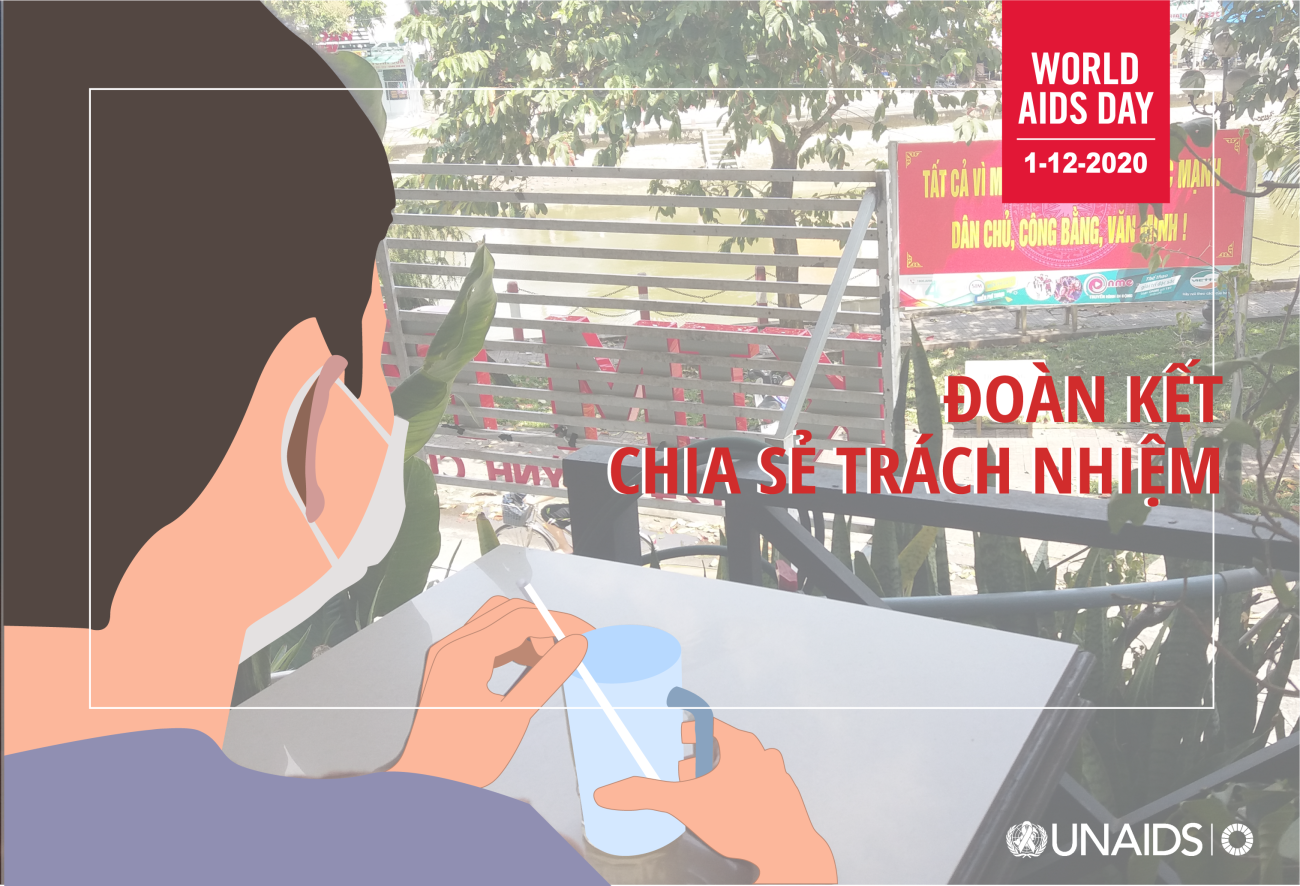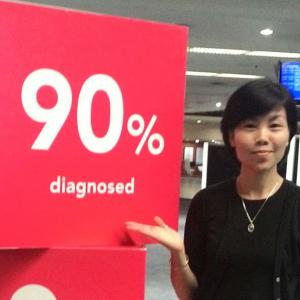"My monthly income can barely support my livelihood. The expense of getting this sexually transmitted infection treatment is unaffordable to me," said Trung (not his real name), who is a male sex worker in his early twenties.
Not daring to tell his parents that he is gay, Trung dropped out of school at the end of junior secondary school and left his hometown six years ago. He started working in a cafe in the daytime and selling sex at night. However, his income is only enough for his daily necessities such as water, food, electricity, gasoline for his motorbike and rent. He can hardly have any savings.
In 2019, Trung found out having a genital wart. He went to a local public hospital for checking but unexpectedly, at the same time his father also needed getting treatment in a hospital. After sending some money back to his family, Trung had no money left for completing treatment of his sexually-transmitted infection (STI). “I am also afraid of facing indifference and discrimination in the public health facilities. Yet, I cannot afford to get treatment in private health facilities.”
Poverty and fear of stigma barred him from getting his health condition appropriately taken care of. Trung revealed, "For not worsening the sexually-transmitted infection, I have already reduced the number of my sex work clients and always used condoms and lubricant. But still, I need to endure the pain from the untreated wart."
Amid the COVID-19 pandemic, Trung’s income from selling sex reduced by one third. He faced increased difficulties to earn enough of income to provide for himself.
Trung’s situation became known to the Viet Nam Network of Self-Help Groups of Sex Workers (VNSW) in one VNSW’s visit to the self-help group of male sex workers where Trung is a member. Trung received daily necessity package provided by VNSW, with support from UNAIDS*. Knowing his STI status, VNSW referred Trung to the “My Home” community-friendly clinic operated by the Southern Office of the Viet Nam Network of People Living with HIV (VNP+) in Ho Chi Minh City. Trung can also benefit from the community-friendly healthcare services for continuation of his STI treatment, partly funded by UNAIDS**.
In response to the impact of COVID-19, UNAIDS has donated a Health/HIV/STI emergency package for HIV key populations affected by the pandemic since September 2020, disseminated through two community-friendly clinics in Hanoi and Ho Chi Minh City. The package provides STI and HIV healthcare services, including overall health check, Hepatitis screening and Hepatitis B vaccination if necessary, STI screening and treatment, and distribution of PEP (post-exposure prophylaxis). Working through the joint efforts of different community groups and networks as in the case of Trung, more than 300 HIV key populations benefited in the first two months of implementation.
“Sex workers who are young men who have sex with men (MSM) are subject to doubled social stigma because they are MSM and sell sex,” said Nguyễn Minh Thuận, a member of VNSW’s Steering Committee who self-identifies as MSM. “Communities can be the trusted partner to reach out to these young MSM and other marginalized HIV key populations to help overcome stigma, provide access to friendly healthcare services and social support, particularly in the hard time of COVID-19.”
The solidarity of communities has been key to ensure healthcare for people most in need like Trung. In the time of colliding HIV epidemic and COVID-19 pandemic, only solidarity and shared responsibility will ensure Universal Access to Healthcare. Life-saving medicines, vaccines, and diagnostics should be considered as public goods. This World AIDS Day, let us all join the call for putting people at the centre of the responses to both HIV and COVID-19, engaging and strengthening the communities to contribute to achieving healthier societies.
(*), (**): Support from UNAIDS is made available with financial contribution from the UN Multi-partner Funds for COVID-19 Response and Recovery





